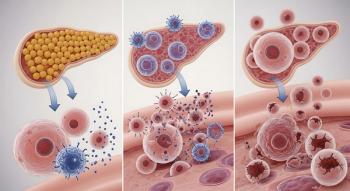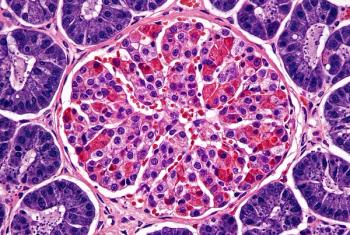
Research: Leptin Could Address Diabetic Ketoacidosis Without Insulin
Researchers say that a deficiency in the brain of the hormone leptin is as much a part of the cascade that can lead to diabetic ketoacidosis as a lack of insulin is. This opens the potential for the development of new therapies for patients with Type 1 diabetes that target the brain.
Diabetic ketoacidosis (DKA), a dangerous complication of Type 1 diabetes, could be managed with the hormone leptin given directly to the brain, according to new research by investigators at the University of Washington School of Medicine recently
When the pancreas can’t make insulin, “the brain gets the message that the body is out of fuel, even if it’s not. This information is being communicated in part by a low blood level of the hormone leptin,” senior author Michael Schwartz, M.D., professor of medicine, Division of Metabolism, Endocrinology and Nutrition at the University of Washington School of Medicine, said in a news release.
Type 1 diabetes is an autoimmune disease where the immune system destroys insulin-producing beta cells in pancreatic islets. Insulin helps the body use glucose for energy, and glucagon is released when glucose levels become too low. About 2 million Americans have Type 1 diabetes. Diabetic ketoacidosis is a serious complication of Type 1 diabetes where the body is not able to use sugar for energy.
In 2011, Schwartz and his colleagues found that diabetic ketoacidosis can be resolved with the hormone leptin, even in the absence of insulin. They had administered leptin to the brains of mice with Type 1 diabetes. Four days later, they found that the animals’ blood glucose and ketone levels became completely normal, despite ongoing severe insulin deficiency.
Leptin, which is produced by your body’s fat cells, helps the brain regulate appetite and body weight. The hormone is carried by the bloodstream into the brain and to the hypothalamus. Insufficient leptin leads the brain to activate circuits that mobilize energy sources, including glucose and ketones.
In this new analysis, Schwartz and his colleagues at the University of Washington wanted to understand how leptin affects the brain and how it might be used in future therapeutics. In The Journal of Clinical Investigation paper, they say the key is understanding how the brain functions during periods of fasting.
The brain, researchers wrote, “has the unique ability to detect when body fuel stores are threatened and, in response, mobilize fuels for use by cells throughout the body…. To promote fuel mobilization, the brain orchestrates both neuroendocrine (e.g., enhanced secretion of growth hormone, cortisol, glucagon, and epinephrine) and autonomic (increased sympathetic nervous system outflow to liver, adipose tissue, and pancreas) responses to stimulate gluconeogenesis, ketogenesis, and lipolysis.”
During fasting, lower insulin levels can lead to adipocyte lipolysis, which is a process where fat cells break down triglycerides, which halts the release of leptin.
The authors theorize that leptin deficiency is as much a part of the cascade that can lead to diabetic ketoacidosis as insulin is, which has the potential for the development of new therapies that target the brain. If the brain can be convinced that fuel stores are not depleted, or if specific brain neurons that trigger the production of glucose and ketones are turned off, the body stops the reaction that leads to severe hyperglycemia and DKA.
“This new framework challenges that conventional wisdom about insulin deficiency as the sole cause of diabetic ketoacidosis that has been widely accepted for decades,” said Schwartz. “It shows that the brain plays a powerful role in the genesis of uncontrolled diabetes — and may hold the key to new treatments.”
Newsletter
Get the latest industry news, event updates, and more from Managed healthcare Executive.























